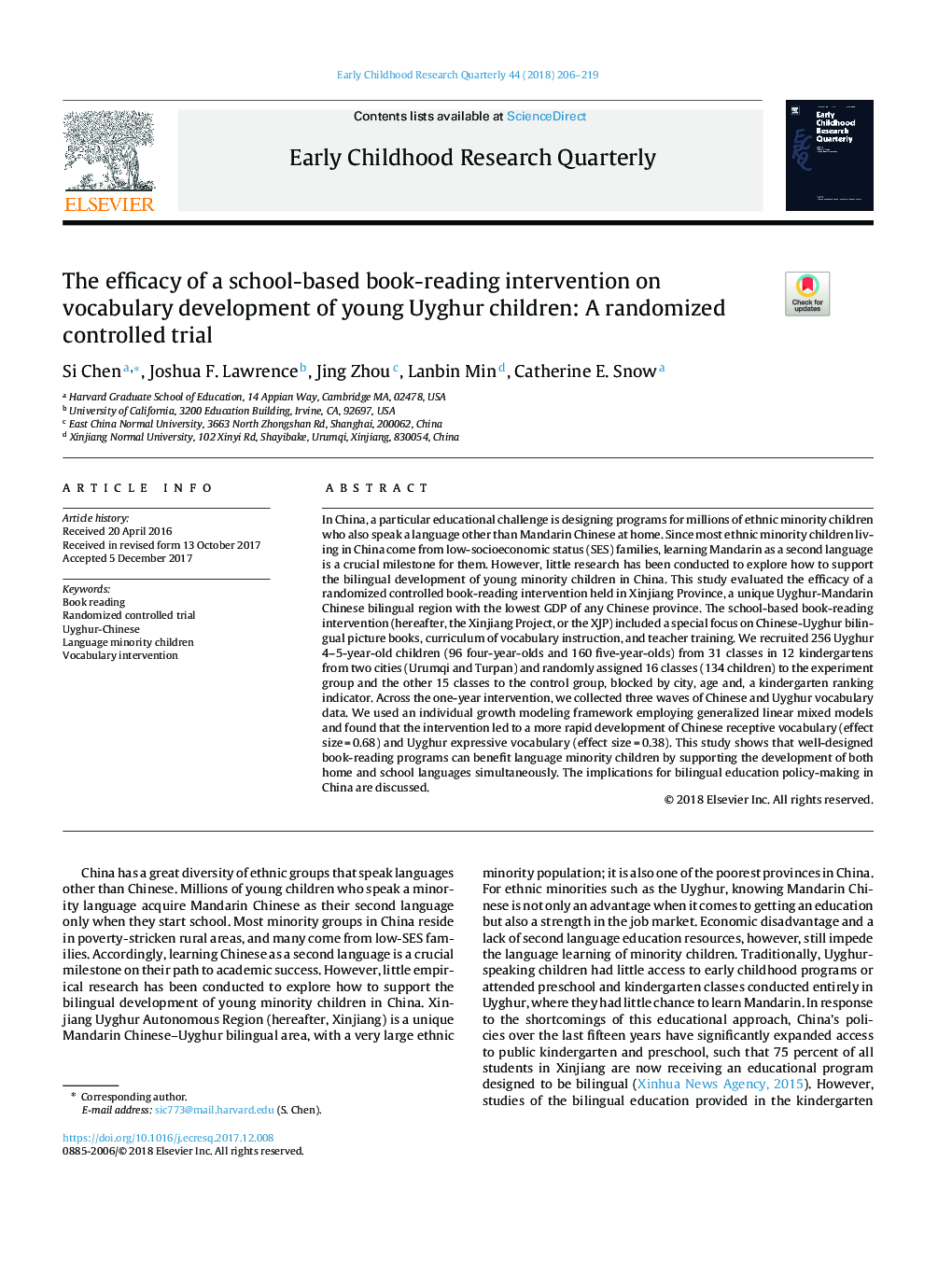| Article ID | Journal | Published Year | Pages | File Type |
|---|---|---|---|---|
| 6840602 | Early Childhood Research Quarterly | 2018 | 14 Pages |
Abstract
In China, a particular educational challenge is designing programs for millions of ethnic minority children who also speak a language other than Mandarin Chinese at home. Since most ethnic minority children living in China come from low-socioeconomic status (SES) families, learning Mandarin as a second language is a crucial milestone for them. However, little research has been conducted to explore how to support the bilingual development of young minority children in China. This study evaluated the efficacy of a randomized controlled book-reading intervention held in Xinjiang Province, a unique Uyghur-Mandarin Chinese bilingual region with the lowest GDP of any Chinese province. The school-based book-reading intervention (hereafter, the Xinjiang Project, or the XJP) included a special focus on Chinese-Uyghur bilingual picture books, curriculum of vocabulary instruction, and teacher training. We recruited 256 Uyghur 4-5-year-old children (96 four-year-olds and 160 five-year-olds) from 31 classes in 12 kindergartens from two cities (Urumqi and Turpan) and randomly assigned 16 classes (134 children) to the experiment group and the other 15 classes to the control group, blocked by city, age and, a kindergarten ranking indicator. Across the one-year intervention, we collected three waves of Chinese and Uyghur vocabulary data. We used an individual growth modeling framework employing generalized linear mixed models and found that the intervention led to a more rapid development of Chinese receptive vocabulary (effect sizeâ¯=â¯0.68) and Uyghur expressive vocabulary (effect sizeâ¯=â¯0.38). This study shows that well-designed book-reading programs can benefit language minority children by supporting the development of both home and school languages simultaneously. The implications for bilingual education policy-making in China are discussed.
Related Topics
Social Sciences and Humanities
Psychology
Applied Psychology
Authors
Si Chen, Joshua F. Lawrence, Jing Zhou, Lanbin Min, Catherine E. Snow,
